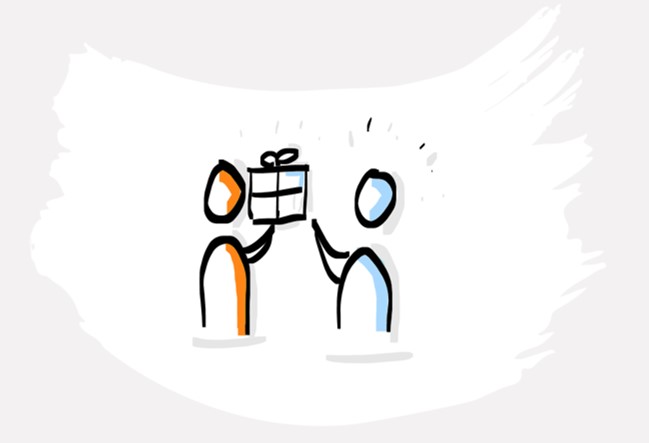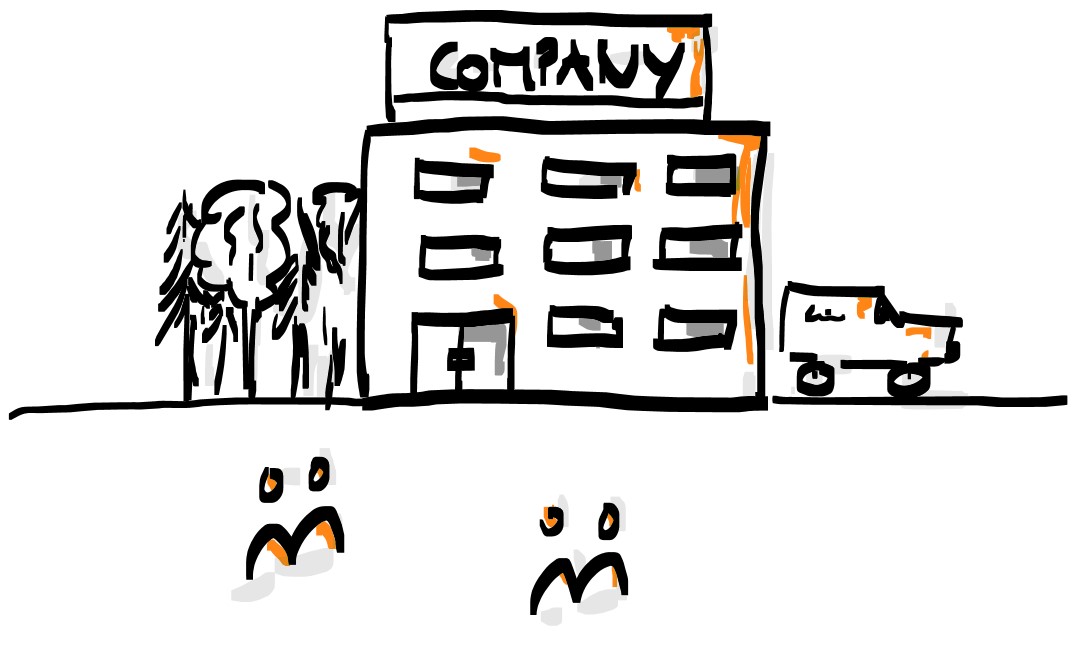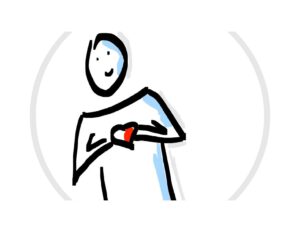Taking responsibility is highly regarded in our society and is correspondingly high on the agenda. But what if this actually good thing turns into the opposite? An interview with my colleague and friend, the psychiatrist and author Dagmar Ruhwandl.
 Dagmar Ruhwandl is a psychiatrist and psychotherapist. She specializes in burnout and also works as a consultant and trainer, supporting companies on the topic of healthy leadership. The title of one of her latest books is: ” About the joy of sharing responsibility. Life without excessive demands.”
Dagmar Ruhwandl is a psychiatrist and psychotherapist. She specializes in burnout and also works as a consultant and trainer, supporting companies on the topic of healthy leadership. The title of one of her latest books is: ” About the joy of sharing responsibility. Life without excessive demands.”Dear Dagmar, you are a psychiatrist and psychotherapist. So one can be a bit surprised that you deal with the topic of responsibility. Does taking responsibility cause people to get sick?
Dagmar: Taking responsibility is actually a wonderful thing. Whether on a small scale, for example, cooking a lunch for the whole family or on a large scale, such as taking a leadership position in a company: In many areas, responsibility brings us joy, motivates us and allows us to grow. Responsibility sets us free because it is a central source of self-worth and self-confidence. But if we take over too much or the wrong responsibility for too a long time, it can have negative consequences for us, both physically and psychologically.
What are those consequences? What kind of complaints do people approach you with?
Often patients come after their bodies start to hurt. Symptoms can be: Heart palpitations, gastrointestinal complaints, tension headaches, permanent back pain due to muscle tension, sleep disorders, lethargy. When responsibility becomes overwhelming, when the system tips the balance, people can develop depressive symptoms, become lacking in energy and drive, and no longer see any sense in what they are doing. That happens even tp strong people who like to take on responsibility, and have always been able to accomplish a lot.
This certainly means that those affected suffer greatly. Nevertheless, you report in your book that affected people wait on average a long eight years before they go to see a doctor or therapist. But that certainly doesn’t have to be this way. How can we notice that things are getting dicey and that we should get help?
Early warning signs vary from person to person. But there are a few symptoms that you can notice early on and behaviors that you should observe. These include, for example, asking yourself how much passion you put into an activity – be it professional or personal – and when it starts to limit you. For example, if we are passionate about a professional project but realize that because of it we have been neglecting other important things for some time, such as sports, hobbies, close friends, we should pause. Also, if we no longer manage or find it increasingly difficult to regain our composure after stressful situations, this should be a warning signal.

You said that there is also false responsibility. How can I tell the difference between that and the right one?
It’s not so easy at all. First, you should try to understand why you you tend to take over the lot of responsibility in the first place. Often this begins in childhood or adolescence! People who, for example, had a parent who was depressed or alcoholic, tend to take on responsibility beyond their limits and in a way that is not appropriate to their life situation. For example, if as a child a man always has taken care of the household and has maintained social contacts for his depressed mother, there is a certain chance that, as an adult, he will tend to take on responsibility beyond measure as well. As a child, he was completely overwhelmed with this responsibility, because it was far too extensive and wrong for a child, it did not correspond to his abilities. But there was no escape, and so at some point it felt “normal.” This is the reason why later in life it is so difficult for him to distinguish whether the responsibility he is taking on is appropriate or not.
So one’s own childhood experiences with oneself and the environment play a crucial role. But there’s another thing you bring up in your book that surprised me: The transmission of trauma, fear and maybe even other reaction patterns across generations! Does this mean that I have the sense for responsibility of my ancestors in me, and behave accordingly?
At least it is quite likely that patterns of responsibility are virtually inherited over generations. This is often particularly visible in the families of entrepreneurs or in families in which for generations a profession is shared by many, such as families of doctors or lawyers. If that suits us and fits our individual personalities: No problem whatsoever! Then we can even find fulfillment in taking on the same responsibilities as our grandfather, mother or uncle in a particularly fitting way. But if, for whatever reason, you are somehow different and you share different talents, values or interests, it can be immensely overwhelming.
Of course, in your book you highlight the medical and psychological aspects. At the same time, you link them strongly with philosophical aspects. Why is that?
I admit, as a doctor, I certainly dare to enter a field that I rather anticipate than understand. However, in my research I have found that aspects of responsibility have had a significant impact on our lives for millennia and that philosophers and theologians in particular have been developing excellent thoughts on this for a very long time, but which also sometimes make great demands on us in terms of taking responsibility.

As a medical doctor, burnout expert and workplace health specialist, you’ve long accompanied and helped people and organizations who find themselves in overwhelming situations or want to protect themselves from them. Do you have the impression that the pressure on individuals and companies is increasing today? That the way we take responsibility and deal with it is changing compared to the past?
In fact, I had hoped that the response of society and companies to the “burnout wave” of the early 2000s would be more rapid. I was always very optimistic that the excessive demands on individuals would dissipate more quickly through corporate measures. I seem to have hoped for a bit too much. Because so far, I don’t see any significant change. What I am seeing is, though, a more uneven distribution of responsibility – and also of other resources – among the individual people involved. In my perception, there are more and more people who tend not to shoulder responsibility, and individuals who have to shoulder ever greater amounts of responsibility in return.

And yet, in your book, you address the changes in organizational structures and working environments in general, which are very noticeable here and there and often concern me and my colleagues in my work. How do you see these efforts? Can they help to fulfill the hope for a more equal, healthier distribution of responsibility, at least to some extent?
 Dear Dagmar, thank you for your time!
Dear Dagmar, thank you for your time!